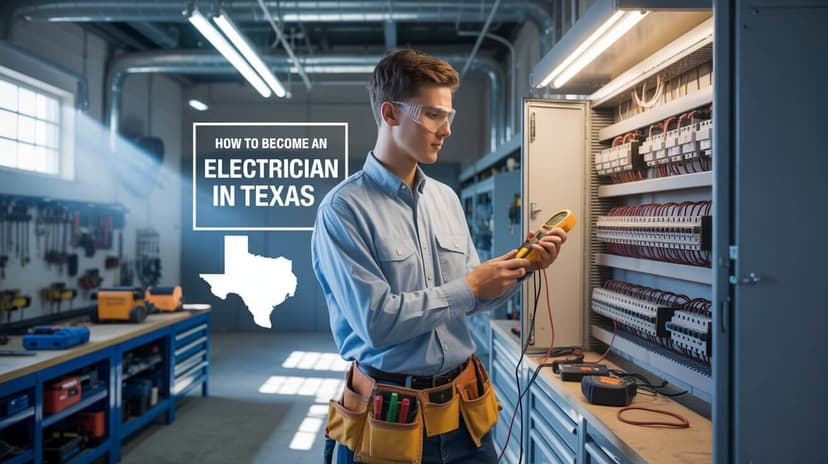Electricians serve an indispensable role in modern society, ensuring the safe and reliable distribution of electrical power in residential, commercial, and industrial settings. Their expertise spans a wide array of specializations that address various components of electrical systems.
Understanding the distinct types of electricians not only clarifies their qualifications but also highlights the diverse environments in which they operate. This guide offers a comprehensive overview of the primary categories within this skilled trade, emphasizing their specific functions and contributions.
Key Takeaways
Electricians specialize in sectors such as residential, commercial, industrial, maintenance, and low-voltage work.
- Licensing and certification requirements vary based on specialization and jurisdiction.
- Specialized electricians—including those in renewable energy or automation—support emerging technologies.
- All types must follow rigorous safety protocols and electrical codes.
- Career paths allow for advancement through apprenticeships, licensing, and continuing education.
Residential Electricians
Residential electricians focus on electrical systems in private homes.
Typical Responsibilities:
Install and repair:
- Wiring
- Outlets
- Lighting fixtures
- Circuit breakers
- Troubleshoot household electrical issues
- Upgrade electrical panels and recommend energy-efficient solutions
- Conduct regular inspections to prevent hazards
- Interpret blueprints and house-specific diagrams
Licensing Requirements:
- Complete a formal apprenticeship
- Pass a state or local licensing exam
- Some regions offer residential-specific licenses
- Maintain licensure through ongoing education
Residential electricians must be precise, code-compliant, and safety-focused to ensure homes remain functional and secure.
Commercial Electricians
Commercial electricians specialize in systems for business facilities, such as offices, stores, and public buildings.
Typical Responsibilities:
Work with:
- High-voltage wiring
- Lighting systems
- HVAC controls
- Fire alarms
- Security infrastructure
- Coordinate with architects and contractors on large-scale builds
- Ensure systems are energy-efficient and scalable
System Integration and Controls:
Install:
- Smart lighting
- Access controls
- Telecom systems
- Program and maintain energy management systems
- Handle conduit and cabling for data networks
Regulatory Compliance:
- Follow OSHA and NEC standards
- Navigate permit processes and inspections
- Conduct regular safety audits and keep detailed documentation
Commercial electricians ensure complex systems run smoothly and safely in business-critical environments.
Industrial Electricians
Industrial electricians work in factories, manufacturing plants, and large facilities that require specialized electrical support.
Typical Responsibilities:
- Install and maintain:
- High-voltage systems
- Heavy machinery wiring
- Control equipment
- Diagnose and repair electrical faults
- Collaborate with engineers and tech teams
- Read and apply complex schematics
Specialized Skills:
- Proficiency in:
- Programmable Logic Controllers (PLCs)
- Variable Frequency Drives (VFDs)
- Motor control centers
- Integration of automation and robotics
- Familiarity with industrial communication protocols (e.g., Modbus, Ethernet/IP)
Safety and Environmental Focus:
- Operate under stringent PPE and lockout/tagout protocols
- Ensure compliance with environmental disposal and energy usage standards
- Participate in emergency response training
Industrial electricians are vital to manufacturing operations, combining electrical, mechanical, and automation knowledge.
Low Voltage Electricians
Low voltage electricians specialize in systems under 50 volts, especially those used in communication and automation.
Common Systems:
- Telecommunications and data networks
- Fiber optics and structured cabling
- Alarm and access control systems
- Audio, intercom, and building automation
Key Skills:
- Install and maintain smart building devices
- Handle delicate components and fine wiring
- Collaborate with IT teams and contractors
- Understand and apply standards specific to low-voltage systems
Emerging Technologies:
- Work with IoT devices, wireless integration, and energy monitoring
- Install green building technologies and renewable energy interfaces
- Low voltage electricians play a growing role in modern, connected infrastructure through precision and tech-savvy expertise.
Maintenance Electricians
Maintenance electricians focus on preserving, testing, and repairing electrical systems across all environments.
Primary Duties:
- Create preventive maintenance schedules
- Inspect and service panels, wiring, and components
- Upgrade outdated parts to meet new standards
- Quickly identify and repair electrical faults
Preventive Strategies:
- Use thermal imaging, resistance testing, and diagnostic software
- Identify weak points before failure occurs
- Work with facility managers to reduce downtime
Continuing Education:
- Stay updated on:
- New safety codes
- Updated tools and technologies
- Electrical best practices
Maintenance electricians are the front line in keeping systems running efficiently, safely, and in compliance.
Conclusion
Electricians encompass a wide range of specializations, each essential to the safe operation of modern society. From home installations to industrial automation, their expertise spans both legacy systems and the latest technology.
Understanding the differences among residential, commercial, industrial, low-voltage, and maintenance electricians helps clarify how each contributes to our energy infrastructure and how they can advance in their careers.
Check out current job listings for residential, commercial, industrial, and specialized electricians →



